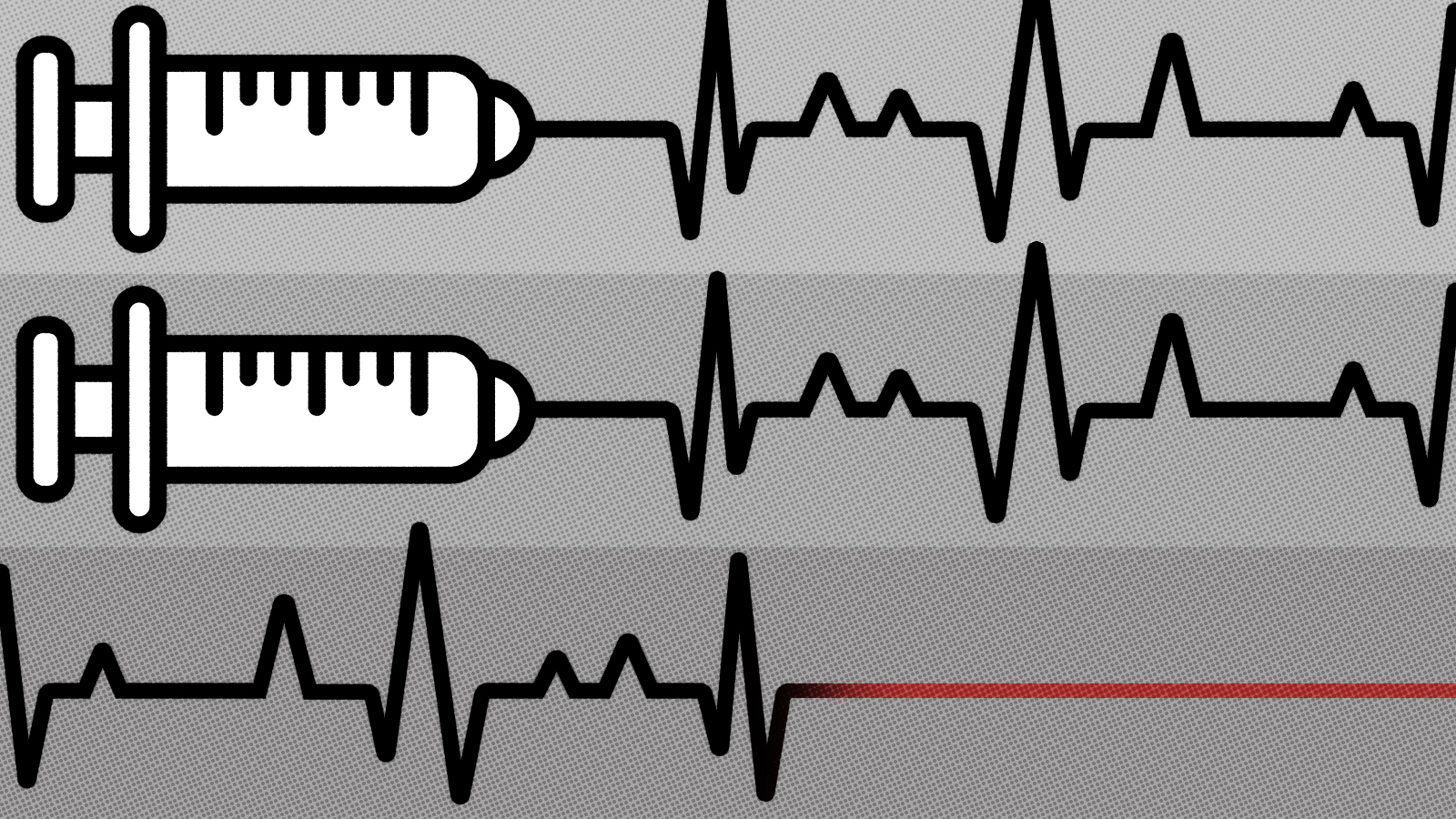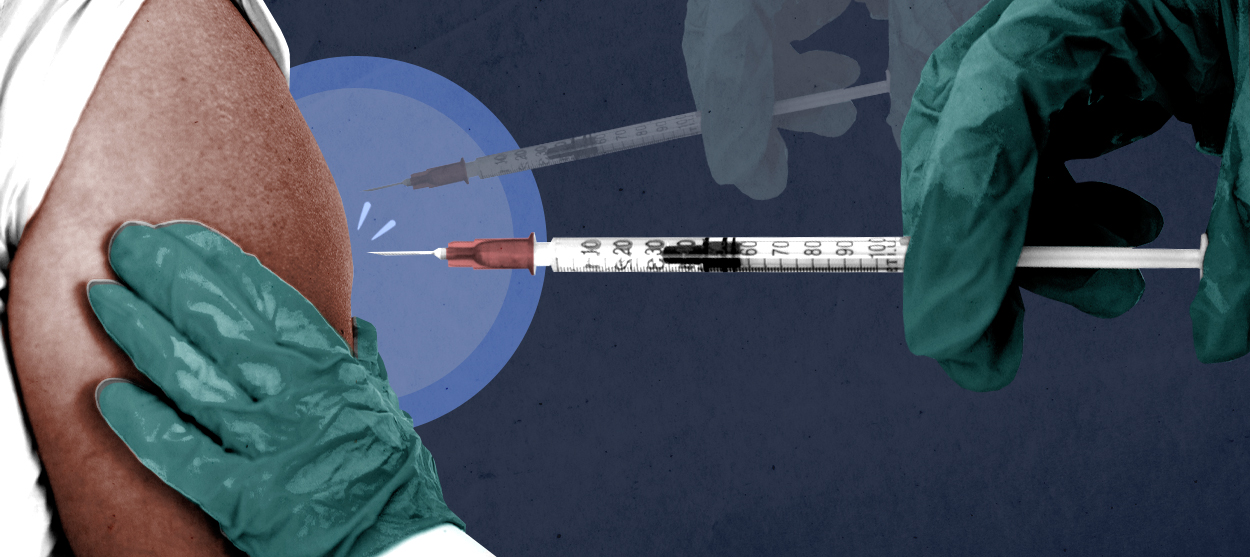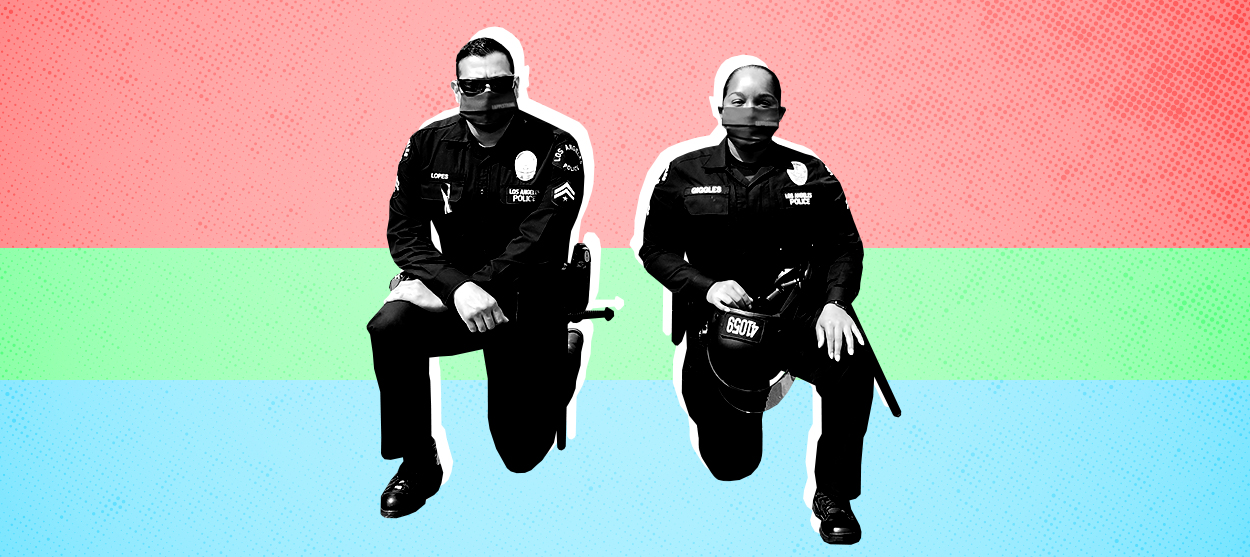The politics of pre-existing conditions
How ObamaCare's most popular provision became the new third rail of American politics

A free daily email with the biggest news stories of the day – and the best features from TheWeek.com
You are now subscribed
Your newsletter sign-up was successful
ObamaCare's most popular provision has become the new third rail of American politics. Here's everything you need to know:
What are pre-existing conditions?
A pre-existing condition is any health problem that exists before a person applies for new medical insurance. Serious, chronic conditions like cancer, diabetes, heart disease, asthma, and HIV/AIDS are obviously on the list of illnesses health-insurance companies want to avoid covering. But insurers have also defined nearly every medical and psychological problem — including acne, toenail fungus, anxiety, and depression — as a pre-existing condition. The Affordable Care Act, better known as ObamaCare, bars insurers from denying coverage or charging higher premiums to individuals with pre-existing conditions. More than 25 percent of American adults under 65 years old — or about 52 million people — have a pre-existing condition that would have prevented them from buying individual health insurance before ObamaCare was passed in 2010. Recent polling shows that 75 percent of Americans support keeping the new protections in place. "Protecting people with pre-existing conditions is now like motherhood and apple pie," said Larry Levitt, a health-care policy specialist at the Kaiser Family Foundation.
The Week
Escape your echo chamber. Get the facts behind the news, plus analysis from multiple perspectives.

Sign up for The Week's Free Newsletters
From our morning news briefing to a weekly Good News Newsletter, get the best of The Week delivered directly to your inbox.
From our morning news briefing to a weekly Good News Newsletter, get the best of The Week delivered directly to your inbox.
How did the system work before ObamaCare?
Insurers routinely denied coverage to sick people who tried to get new coverage, perhaps because they'd lost their jobs or were self-employed. A 2010 study found that 36 percent of adults who had tried to buy an individual plan over the previous three years were rejected, charged a higher price, or had certain treatments excluded. One major insurer maintained a list of 425 medical diagnoses that it used to justify declining coverage. Thirty-five states organized "high-risk" insurance pools to help cover people who were otherwise uninsurable. But many of these plans charged premiums of up to 200 percent of the average market rate, while also having higher deductibles and fewer benefits. The cost was "catastrophic," said Craig Britton, who once paid $18,000 per year in Minnesota's high-risk pool because of his pancreatitis. "You have to have a good living just to pay for insurance."
What did ObamaCare do?
It made it financially possible for health-insurance companies to insure everyone. The Affordable Care Act did this by providing insurers with enough healthy customers to subsidize the sick ones, although premiums did rise. ObamaCare attracted millions of new customers by providing subsidies to low- and middle-income people, and by requiring through an "individual mandate" that almost everyone in the country had to buy insurance or pay a tax penalty. It also provided "risk-adjustment payments" to compensate insurance companies for taking on sicker, more expensive patients.
A free daily email with the biggest news stories of the day – and the best features from TheWeek.com
Did this system work?
Yes, but imperfectly. More than 20 million people have gained coverage since ObamaCare was passed in 2010, including many with pre-existing conditions. But the trade-offs involved made the law politically toxic. Many Americans rejected the "individual mandate" as unwarranted government intrusion, and paid a fine instead of complying. Adding to the law's unpopularity, premiums for individual plans spiked during the first few years of the program, after many of the new enrollees turned out to be sicker than expected. Republicans made repealing ObamaCare a centerpiece of their political message, ultimately taking Congress and the White House. During the 2016 presidential campaign, candidate Donald Trump vowed to "terminate ObamaCare." Nevertheless, he also promised to keep protections for pre-existing conditions without explaining how it would be done. "It's a modern age,'' he said. "I think we have to have it.''
What have Republicans actually done?
The Trump administration and Republicans in Congress have succeeded in rolling back parts of ObamaCare, with the 2017 tax cut bill eliminating the individual mandate. But GOP leaders have struggled to come up with a politically viable replacement for the system set up by the ACA. House Republicans narrowly passed a plan in 2017 that would have still required insurance companies to cover people with pre-existing conditions while allowing them to charge much higher premiums. The bill died in the Senate without a vote, with polls showing only 17 percent approval for the bill. The Senate also narrowly voted down a last-ditch "skinny repeal" bill that supposedly would have protected pre-existing conditions even while killing off the law that guarantees they are covered.
Are those protections now safe?
Not really. The White House has issued new rules allowing consumers to buy cheaper, "bare bones" plans that can deny coverage to sick patients, which undermines the ACA. Twenty Republican-controlled states have also sued in federal court, arguing that all of ObamaCare's requirements are unconstitutional without the individual mandate. The Trump administration has given its support to that lawsuit, rather than defending the ACA. If the lawsuit succeeds, the ACA — and the protection of preexisting conditions — is dead. In the midterm elections, Democrats campaigned heavily on protecting the ACA, with health care consistently ranking as the No. 1 issue for voters. In response, many Republicans who adamantly opposed ObamaCare were forced to promise they'd protect pre-existing conditions. "Before the passage of the Affordable Care Act, Americans broadly embraced a national obligation to insure the elderly, the poor, and the disabled," said Dr. David Blumenthal, president of the Commonwealth Fund. "We've now added the sick to this list. If the past is prelude, there will be no retreating from this commitment."
Congress' next move
House Democrats plan to use their new majority to push legislation protecting pre-existing conditions as soon as the new Congress comes into session in January. Rep. Richard E. Neal of Massachusetts, the incoming House Ways and Means Committee chairman, said he envisions a bill that would affirm ObamaCare's commitments. Another Democratic bill being circulated would reverse the Trump administration's decision allowing bare-bones insurance plans. It's unclear if any of these schemes would find support in the Republican-controlled Senate, but Democrats hope to keep pressing their political advantage by forcing House GOP members who campaigned on protecting pre-existing conditions to vote on it. "After [Republicans] saw how badly their position was polling on it, they said they were for it," Neal told The Washington Post. "Let's establish the principle, embrace it, and move on."
-
 The ‘ravenous’ demand for Cornish minerals
The ‘ravenous’ demand for Cornish mineralsUnder the Radar Growing need for critical minerals to power tech has intensified ‘appetite’ for lithium, which could be a ‘huge boon’ for local economy
-
 Why are election experts taking Trump’s midterm threats seriously?
Why are election experts taking Trump’s midterm threats seriously?IN THE SPOTLIGHT As the president muses about polling place deployments and a centralized electoral system aimed at one-party control, lawmakers are taking this administration at its word
-
 ‘Restaurateurs have become millionaires’
‘Restaurateurs have become millionaires’Instant Opinion Opinion, comment and editorials of the day
-
 Do unvaccinated COVID patients deserve scarce care? A doctor weighs in.
Do unvaccinated COVID patients deserve scarce care? A doctor weighs in.The Explainer Justice, judgment, and the last ICU bed
-
 How to vaccinate the anti-vaxxers
How to vaccinate the anti-vaxxersThe Explainer Instead of blaming people for not doing the right thing, let's focus on eliminating the obstacles to vaccination that still remain
-
 The U.S. could double its COVID-19 vaccine availability overnight. What's the holdup?
The U.S. could double its COVID-19 vaccine availability overnight. What's the holdup?The Explainer How the FDA could approve a more efficient vaccine rollout
-
 The October Surprise nobody wanted
The October Surprise nobody wantedThe Explainer Trump has COVID-19. Really, 2020?
-
 Life is worth living
Life is worth livingThe Explainer What's driving America's rising suicide rate?
-
 Social workers are masters at de-escalation. Here's what the police can learn from them.
Social workers are masters at de-escalation. Here's what the police can learn from them.The Explainer Knowing how to peacefully resolve conflict, rather than exacerbate it, can save lives
-
 Settling in for the long pandemic
Settling in for the long pandemicThe Explainer Life won't be back to "normal" anytime soon
-
 Sports reveal how much America is trailing the rest of the world
Sports reveal how much America is trailing the rest of the worldThe Explainer MLS and other American leagues are stumbling through their pandemic restart plans